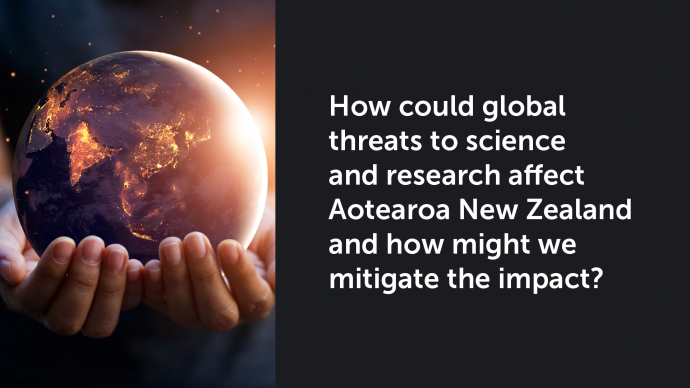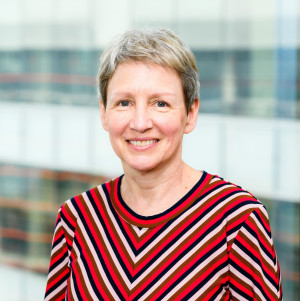Expert perspective: Professor Margaret Hyland FRSNZ

Professor Margaret Hyland FRSNZ, a chemical and materials engineer and university leader, wants universities to regain public trust by demonstrating their value:
"Most of our researchers are actively involved in international collaborations, so they are very exposed to the challenges affecting research sectors in other countries. Current financial conditions in Aotearoa New Zealand also hinder the ability of our universities to buffer our researchers against these pressures.
Deprioritisation of funding for environmental and social research by the United States’ government is especially troubling. Beyond the direct effects, it signals to other nations that constraining research funding is acceptable; for example, Serbia has recently limited the time that its academics can spend on research to a half-day per week. Policies that promote equity, diversity, and inclusion are also being deprioritised in many places.
The humanities and social sciences are particularly vulnerable in the current climate, and universities remain the only places in New Zealand where work in these areas happens. Perhaps most worrying therefore is how global changes are eroding the social licence of universities. While trust in science remains high, trust in academics is in decline. The fundamental problem facing higher education isn't merely financial constraints or political interference—it's the loss of social licence.
To surmount this existential threat, our universities must work hard to regain public trust. The path forward lies not in defending traditional notions of academic impact, but in fundamentally reimagining how universities engage with society.
Universities have traditionally emphasised their role of producing well educated graduates, but this is no longer enough. Universities have also touted the impact of research, but the concept of research impact suggests that researchers have direct control over outcomes – which isn't how the world works.
Instead, at Te Herenga Waka Victoria University, we’ve introduced a ‘Research Mobilisation Fund’. Research mobilisation entails actively designing the research process in partnership with communities to increase the likelihood that the end-results will deliver benefits. The Fund enables researchers to cover the costs of engagement and co-design that aren’t typically included in traditional grants.
The current review of our university sector offers an opportunity to extend beyond traditional measures of performance and research impact to encompass mobilisation of research into the real world, and in doing so to regain public trust.
Mobilisation can look different across disciplines—commercialisation of technology, clinical interventions in health, teaching innovations in education, and policy influence in the social sciences. This is the “third mission” of universities—to deliver relevant work that reaches those who can best use it to make a difference.
Universities require autonomy and financial stability to enable their role of critic and conscience of society. To regain their independence, universities need to demonstrate their value in tangible ways. Research mobilisation offers a pathway to rebuilding the public trust essential to the future of our universities, by demonstrating not just academic excellence but genuine societal partnership."
Published May 2025
 Professor Margaret Hyland FRSNZ is Deputy Vice-Chancellor (Research) at Te Herenga Waka—Victoria University of Wellington. Her research on materials and minerals has enabled a range of engineering applications, including reducing global fluoride emissions from aluminium smelters. Professor Hyland has been awarded the Society’s Pickering Medal for excellence in technology, and was Chief Science Advisor for the Ministry of Business, Innovation and Employment.
Professor Margaret Hyland FRSNZ is Deputy Vice-Chancellor (Research) at Te Herenga Waka—Victoria University of Wellington. Her research on materials and minerals has enabled a range of engineering applications, including reducing global fluoride emissions from aluminium smelters. Professor Hyland has been awarded the Society’s Pickering Medal for excellence in technology, and was Chief Science Advisor for the Ministry of Business, Innovation and Employment.

